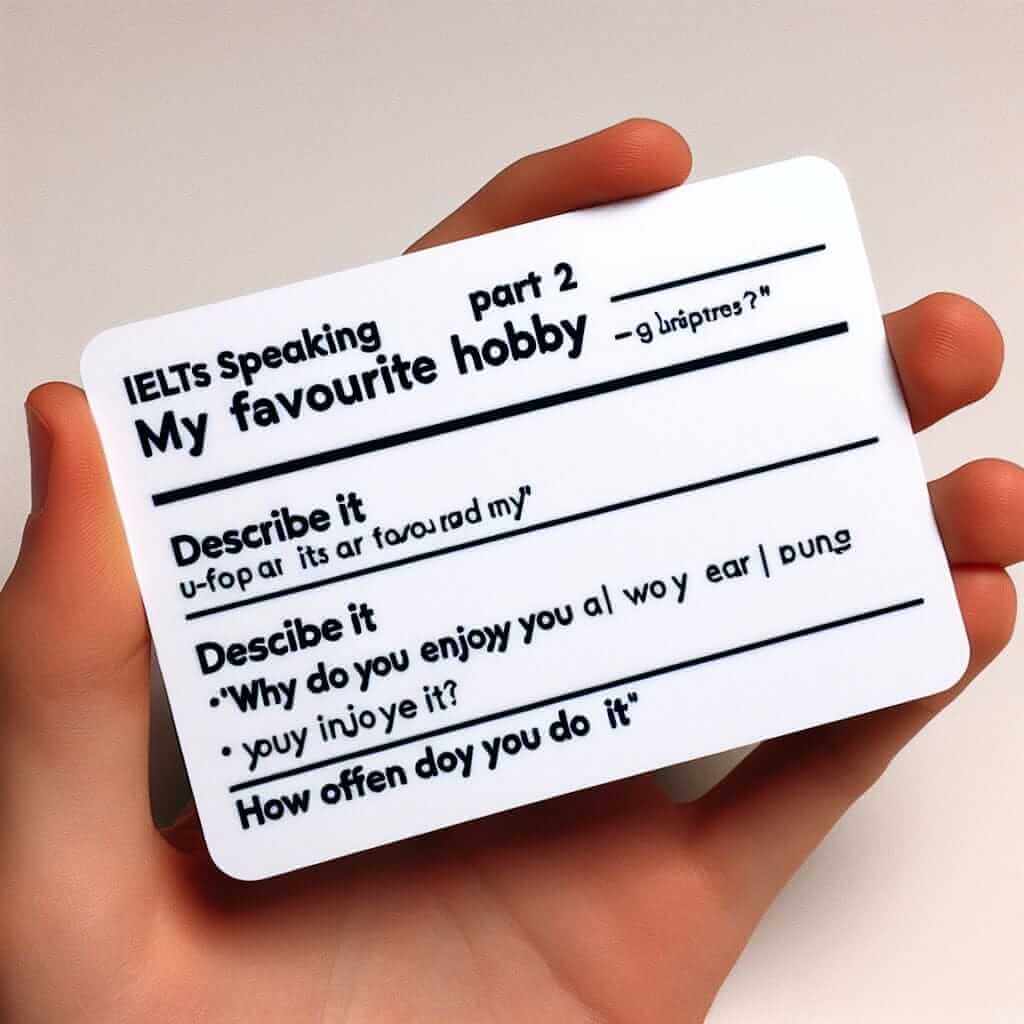The Importance of IELTS Speaking Part 2
IELTS Speaking Part 2, also known as the “Long Turn”, is a crucial section that assesses your ability to speak fluently and coherently on a given topic for an extended period. It’s a chance for you to demonstrate your vocabulary, grammar, pronunciation, and ability to structure your thoughts. Acing this part significantly contributes to your overall Speaking band score.
Mastering IELTS Speaking Part 2: A Step-by-Step Approach
1. Understanding the Task
You will be given a cue card with a specific topic and some prompts to guide your talk. You’ll have one minute to prepare and then need to speak for 1-2 minutes. The examiner will then ask you one or two follow-up questions.

2. Effective Preparation Strategies
Utilize the Preparation Time Wisely:
- Analyze the Cue Card: Identify the keywords, the tense you should use, and the key points you need to cover.
- Brainstorm Ideas: Jot down relevant vocabulary, and a rough structure for your response. Don’t write full sentences; focus on keywords and phrases.
Practice Note-Taking:
- Use mind maps, diagrams, or bullet points to organize your thoughts efficiently during preparation time.
- Practice making your notes concise and easy to refer to while speaking.
3. Structuring Your Response
A Well-Structured Response is Key:
- Introduction: Start with a clear introduction, paraphrasing the topic and stating your personal connection or opinion.
- Main Points: Develop the prompts on the cue card into two or three main points. Use examples and anecdotes to support your ideas.
- Conclusion: Briefly summarize your main points and provide a clear ending to your response.
4. Delivering a Confident Performance
Focus on Fluency and Coherence:
- Speak at a natural pace, using linking words and phrases to connect your ideas smoothly.
- Don’t worry about making minor grammatical errors; focus on communicating your ideas effectively.
Enhance your Lexical Resource:
- Use a wide range of vocabulary related to the topic.
- Demonstrate your ability to use idioms, phrasal verbs, and collocations appropriately.
Pay Attention to Pronunciation:
- Speak clearly and pronounce words correctly.
- Pay attention to your intonation and stress to convey meaning effectively.
5. Handling Follow-Up Questions
- Listen carefully to the examiner’s questions and respond relevantly.
- Keep your answers brief and to the point.
- Don’t be afraid to ask for clarification if needed.
Example from a Real IELTS Speaking Test:
Cue Card: Describe a time you helped someone.
Possible Response:
“I’d like to talk about a time I helped my elderly neighbor with his groceries. He was struggling to carry his bags up the stairs, and I noticed he looked quite tired. I offered to help, and he was very grateful. It was a small act of kindness, but it meant a lot to him, and it made me feel good to be able to assist someone in need. We chatted briefly about his day, and I could tell he appreciated the company as much as the help with his groceries.”
Top Tips for Success
- Practice Regularly: Use practice cue cards and record yourself speaking to identify areas for improvement.
- Expand Your Vocabulary: Read widely on various topics and note down useful words and phrases.
- Seek Feedback: Ask a teacher or language partner to evaluate your speaking and provide constructive criticism.
Conclusion
Mastering IELTS Speaking Part 2 requires preparation, practice, and confidence. By following these tips and strategies, you can deliver a well-structured, fluent, and engaging response that will help you achieve your desired band score. Remember, practice makes perfect, so keep practicing and speaking English as much as possible!